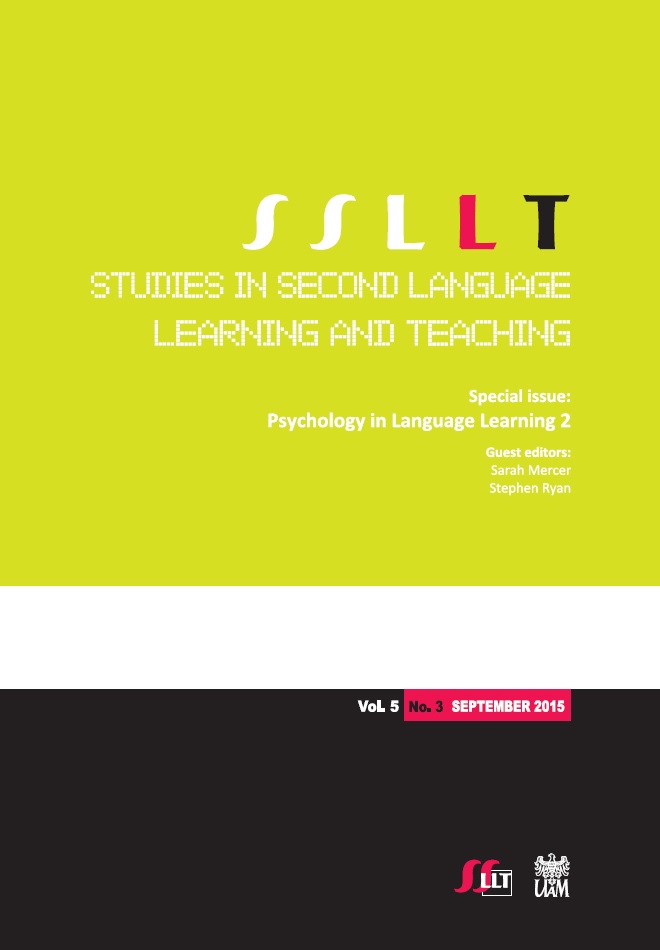Parental visions of their children’s future as a motivator for an early start in a foreign language
Parental visions of their children’s future as a motivator for an early start in a foreign language
Author(s): Joanna Rokita-JaśkowSubject(s): Language and Literature Studies
Published by: Wojskowe Biuro Historyczne im. gen. broni Kazimierza Sosnkowskiego
Keywords: early foreign language learning; visions; educational aspirations; identity
Summary/Abstract: educational aspirations as manifested by enrolling their children (aged 3-6)into very early L2 instruction. The concept of educational aspirations is widely studied in educational psychology as well as in sociology and pedagogy. In SLA, these aspirations can fit in the new framework of imagery and creating visions as they are a part of an ideal L2 self. Data analysis concludes that parental visions towards their children’s achievement reflect self-efficacy beliefs; in other words, those parents who were unsuccessful foreign language (FL)learners themselves hoped that by starting early their children would learn lingua franca English well and this would help them achieve educational and vocational success, which indicates an instrumental motive. By contrast, those parents who were successful language learners were positive about their children’s future plurilingual attainment, not necessarily voicing the necessity of“an early start.” They believe languages contribute to overall emotional and cognitive growth, which shows more intrinsic and integrative motives. These findings suggest that the differences in ultimate FL attainment may start very early and are rooted in the social (family) context.
Journal: Studies in Second Language Learning and Teaching
- Issue Year: V/2015
- Issue No: 3
- Page Range: 455-472
- Page Count: 18
- Language: English

